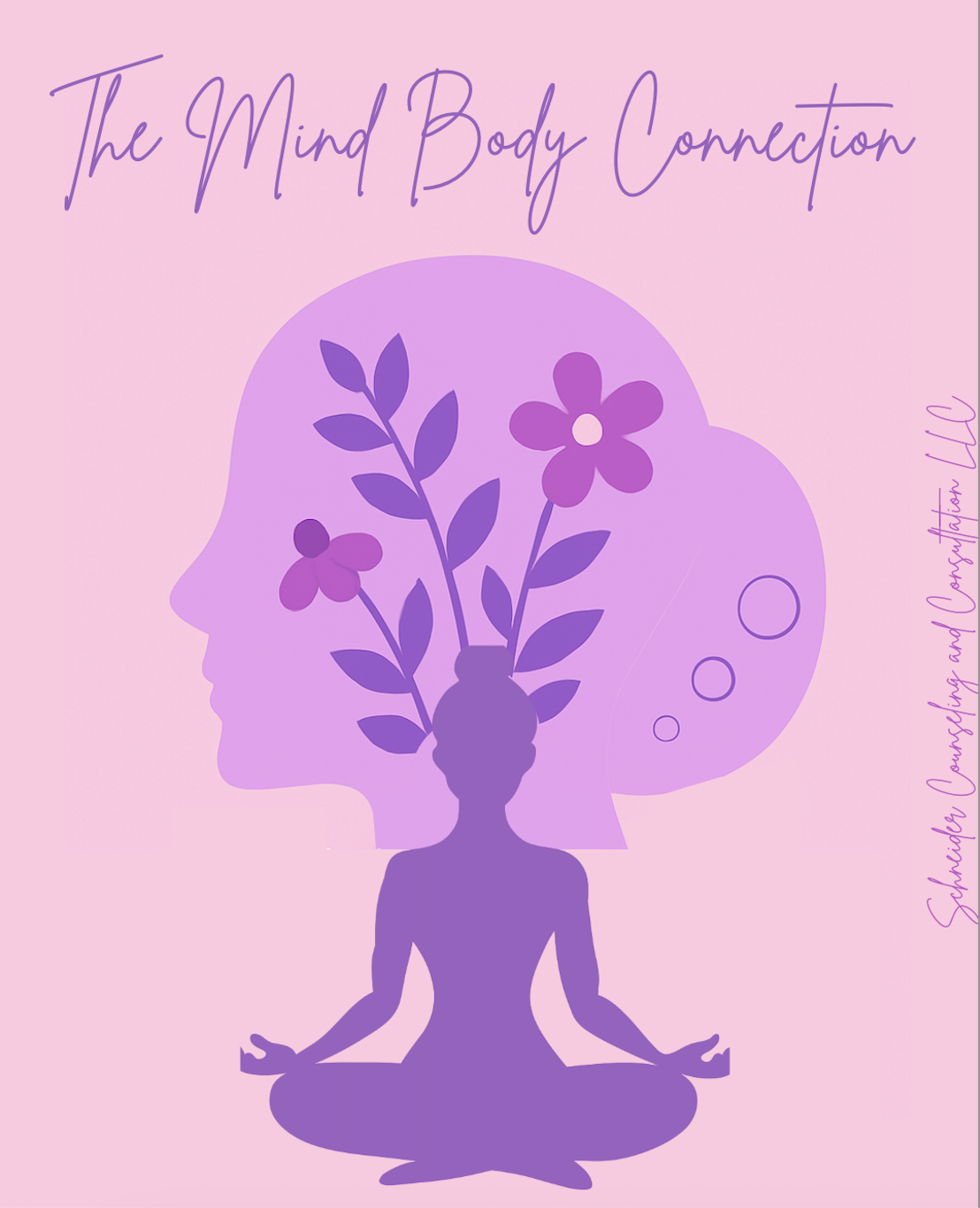The Mind Body Connection: Why Your Mental Health Depends on More Than Just Your Thoughts
In recent years, there’s been a growing awareness of mental health and the many factors that influence it. But one crucial aspect is often overlooked or misunderstood: the mind-body connection. While many people still think of mental and physical health as two separate entities, science is telling a different story, one in which our minds and bodies are deeply intertwined.
What Is the Mind Body Connection?
The mind-body connection refers to the complex relationship between our thoughts, emotions, behaviors, and physical health. It’s the idea that what happens in our minds can affect our bodies, and vice versa.
For example, when you’re anxious, your heart may race, your muscles tense, and your stomach churn. These aren’t just imaginary symptoms; they’re real, measurable physiological responses triggered by your brain. Similarly, when your body is under stress, from illness, poor sleep, or chronic pain — your mental state often takes a hit, leading to symptoms like irritability, depression, or cognitive fog.
How the Mind Affects the Body
Chronic stress is one of the clearest examples of how mental strain can damage physical health. When you’re under constant pressure, your body stays in a prolonged state of fight-or-flight, releasing stress hormones like cortisol. Over time, this can weaken your immune system, increase inflammation, raise your blood pressure, and contribute to heart disease or digestive problems.
Mental health conditions like anxiety and depression can also manifest physically. Headaches, fatigue, insomnia, and gastrointestinal issues often accompany these disorders. That’s because our brains influence everything from hormone regulation to the way our nervous system functions.
How the Body Affects the Mind
It’s not a one-way street. What you do with your body has a profound impact on your mental health. Regular exercise, for instance, releases endorphins, your brain’s natural feel-good chemicals, and can improve mood, reduce anxiety, and even ease symptoms of depression.
Nutrition also plays a key role. Diets high in sugar and processed foods have been linked to increased risk of mental health disorders, while a balanced diet rich in whole foods, omega-3 fatty acids, and fiber can support brain function and emotional regulation.
Sleep, often underestimated, is another pillar. Without enough restorative rest, our ability to manage emotions, focus, and cope with stress dramatically declines.
Practices That Support the Mind-Body Connection
So how can we use this knowledge to improve our mental health? Here are a few evidence-based practices that strengthen the mind-body connection:
- Mindfulness and meditation: These practices reduce stress and increase self-awareness, helping the brain regulate emotional responses.
- Physical activity: Even moderate movement like walking or yoga has powerful effects on mood and cognition.
- Breathwork: Deep, intentional breathing stimulates the vagus nerve, calming the nervous system and reducing anxiety.
- Therapy and counseling: Psychological support can help unpack mental burdens that might be manifesting physically.
- Nutrition and hydration: Fueling your body with the right nutrients supports mental clarity and emotional balance.
Final Thoughts
Understanding and nurturing the mind-body connection is not just a holistic buzzword, it’s an essential part of maintaining good mental health. When we treat our bodies well, our minds often follow. And when we care for our mental and emotional well-being, our physical health gets a boost too.
If you’re feeling stuck, overwhelmed, or just out of sync, consider taking a step back and asking: What does my body need right now? You might be surprised by how much clarity and peace comes from simply listening, and responding, to both mind and body in harmony.

